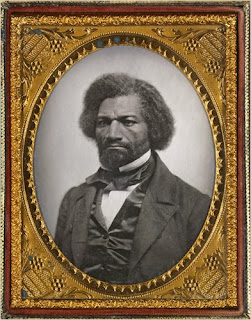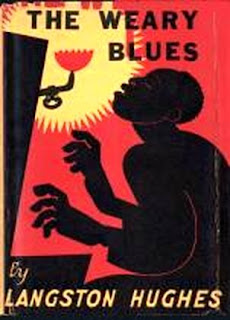Over the past decade, Kara Walker has risen to international prominence for visually stunning works that challenge conventional narratives of American history and the antebellum South, and is among the most provocative and prominent American artists of her generation. With biting humor, the artist comments on race, slavery and liberation, sexual attraction and exploitation, discrimination, and modernity. The lush sensuality of her work haunts the viewer as it exposes the unofficial and subjugated histories of race and slavery in America.
The exhibition features works ranging from the artist’s signature cut black-paper silhouettes and room-size tableaux, to intimate works on paper and her acclaimed recent film animations to narrate her tales of romance, sadism, oppression, and liberation. Walker’s sophisticated command of shading and line evoke the tradition of the cartoon as a preparatory study, while her silhouettes draw from the 19th century cyclorama, large cylindrical paintings without a beginning or an end. Her stunning drawings and silhouettes reflect a profound agility and attention to detail, as she combines forms in complex counterpoints of positive and negative space. Walker’s ability to fuse her technical and formal style with a corporeal aesthetic creates characters and narrative vignettes that are beautiful and tender, yet often grotesque and repugnant as well.
Walker’s scenarios put an end to conventional readings of a cohesive national American history and expose the collective, and ongoing, psychological injury caused by the tragic legacy of slavery. Her work leads viewers through an aesthetic experience that evokes a critical understanding of the past and proposes an examination of contemporary racial and gender stereotypes. Using the genteel 18th-century art of cut-paper silhouettes, Walker’s compositions play off stereotypes and portray, often grotesquely, life on the plantation, where masters and slaves engage in a profoundly unsettling historical struggle. She has said, “The black subject in the present tense is the container for specific pathologies from the past and it is continuously growing and feeding off those maladies.”
Organized deliberately as a narrative, the exhibition articulates the parallel shifts in Kara
Walker’s visual language and subject matter: from a critical analysis of the history of
slavery as a microcosm of American history through the structure of romantic literature and Hollywood film to a revised history of Western modernity and its relationship to the notion of “Primitivism.”
About the Artist - Born in 1969 in Stockton, California, Kara Walker received her BFA from the Atlanta College of Art in 1991 and her MFA from Rhode Island School of Design in 1994. Since that time, she has created more than 30 room-size installations and hundreds of drawings and watercolors, and has been the subject of more than 40 solo exhibitions. She is the recipient of numerous grants and fellowships, including the John D. and Catherine T. MacArthur Foundation Achievement Award (1997) and, most recently, the Deutsche Bank Prize (2004) and the Larry Aldrich Award (2005). She was the United States representative for the 25th International São Paulo Biennial in Brazil (2002). She currently lives in New York, where she is associate professor of visual arts at Columbia University, New York.
Catalogue - To accompany the exhibition, the Walker Art Center has published a 418-page illustrated catalogue containing critical essays by scholars and cultural critics on the myriad social, racial, and gender issues present in Kara Walker’s work by exhibition curator Philippe Vergne; cultural and literary historian Sander L. Gilman; art historian and critic Thomas McEvilley; art historian Robert Storr; and poet and novelist Kevin Young. The publication features more than 150 four-color images of the artist’s work, a complete exhibition history and bibliography as well as an illustrated lexicon of the recurring themes and motifs in the artist’s most influential installations by Yasmil Raymond. Kara Walker has contributed a 36-page visual essay to the catalogue, which is distributed by D.A.P./Distributed Art Publishers, Inc.
Kara Walker: My Complement, My Enemy, My Oppressor, My Love was organized by the Walker Art Center, Minneapolis. It is made possible by generous support from the Henry Luce Foundation, the Andy Warhol Foundation for the Visual Arts, Inc., the Lannan Foundation, the Peter Norton Family Foundation, Linda and Lawrence Perlman, and Marge and Irv Weiser.
Additional support is provided by Jean-Pierre and Rachel Lehmann.
Major support for the Hammer Museum’s presentation is provided by The Broad Art Foundation and The Joy and Jerry Monkarsh Family Foundation.
It is also made possible through the generosity of the Lannan Foundation, Susan and Larry Marx, Harvey S. Shipley Miller, George Freeman, and The Horace W. Goldsmith Foundation. Public programs for the exhibition are supported by Catherine Benkaim and Barbara Timmer.
RELATED:
- The Whitney Museum of American Art: Kara Walker: - “Ms. Walker’s style is magnetic…Brilliant is the word for it, and the brilliance grows over the survey’s decade-plus span. And then there is the theme: race. It dominates everything, yet within it Ms. Walker finds a chaos of contradictory ideas and emotions.” The New York Times, review by Holland Cotter
- The Art of Kara Walker - This Web site is an educational resource developed in conjunction with the Walker Art Center exhibition Kara Walker: My Complement, My Enemy, My Oppressor, My Love,
- Hammer Museum: Kara Walker - Kara Walker: My Complement, My Enemy, My Oppressor, My Love is the first comprehensive presentation of this remarkable African American artist’s career.
- PODCAST Hammer Conversation: Kara Walker - Artist Kara Walker discusses her work in the exhibition My Complement, My Enemy, My Oppressor, My Love with Hammer Museum Chief Curator, Gary Garrels.
contact: sstifler@hammer.ucla.edu WEB: Hammer Museum






































